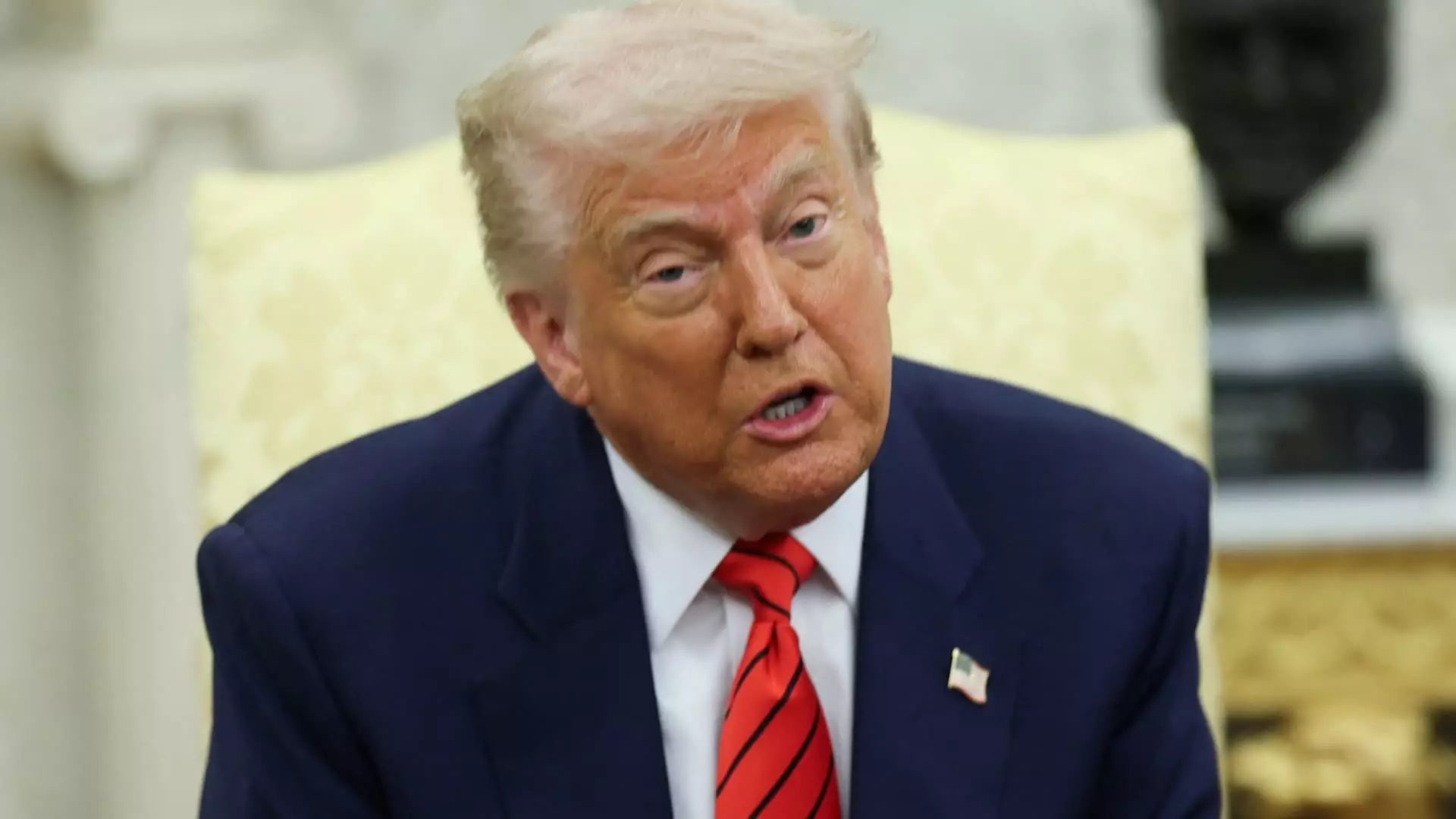The landscape of American trade policy has taken unexpected turns under the Trump administration, notably with the President’s recent comments that the U.S. does not necessarily need to formalize trade agreements with other nations. This shift from the anticipated focus on bilateral deals raises critical questions about the administration’s direction, especially when contrasted with the assurances from high-ranking officials. Trump’s declaration that other countries are the ones who “want a piece of our market” underscores a mere transactional view of international trade, which can overlook the complexities and mutual benefits inherent in such arrangements.
While Trump’s assertion aligns with a confrontational stance toward trade that has characterized his presidency, there’s a disconcerting lack of strategic planning. The constant dismissal of formal agreements might embolden his base of supporters who view global cooperation skeptically, yet it could also alienate business leaders and investors who depend on stability and predictability. A robust trade policy requires moving beyond the simplistic notion that the U.S. is in an advantageous position; it requires acknowledging the interdependence of economies in a globalized world.
Inconsistent Messaging in the White House
The prevailing narrative from the White House regarding trade has become increasingly convoluted. Trump’s remarks at a White House meeting with Canadian Prime Minister Mark Carney revealed a stark contradiction to the previous messages conveyed by his Treasury Secretary Scott Bessent, who had indicated that formal agreements were imminent. This kind of mixed messaging is disconcerting because it suggests a lack of coherence within the administration about its trade strategy. When the President undermines his own aides in public discussions, it not only reflects poorly on the administration’s leadership but also raises skepticism among foreign partners about the reliability of U.S. commitments.
The inconsistency reveals underlying tensions within the Trump administration—between announcing potential trade deals and responses to mounting pressure from various sectors demanding clarity and progress. The nerve-wracking wait for substantial trade agreements has left many questioning the authenticity of the administration’s commitment to improved international relations. With major Asian economies like India, South Korea, and Japan seeking partnerships, it would be naive to disregard the potential benefits of these partnerships merely for optics.
Economic Consequences of ‘Super Luxury Store’ Psychology
Trump’s characterization of the U.S. market in relation to global trade as akin to a “super luxury store” seems not only dismissive but also fundamentally misguided. Market dynamics rely heavily on competition, accessibility, and reciprocal benefit rather than creating an environment that suggests exclusivity. This metaphor may resonate with his base, but it risks alienating a broader audience who understands that trade should be structured around mutual gain and partnership.
The economic ramifications of adopting such a perspective could be severe. As the U.S. markets reacted negatively to Trump’s trade comments, the uncertainty surrounding bilateral agreements looms large. Investors and business leaders are anxious for concrete results, particularly as they brace for the potential fallout from tariff-induced slowdowns. Economy is not merely about inflating markets but about creating stability that fosters growth; the flaunting of a luxury mindset also reflects a detachment from working-class realities.
A Call for Pragmatic Engagement
In a world of supply chains interwoven across continents and economies, Trump’s trade philosophy needs recalibration. Dismissing the need for formal agreements only serves to complicate relations and prevent the U.S. from leveraging its economic might effectively. Pragmatism in trade is essential; countries aren’t just transactionally motivated, but also strategically invested in building prolonged relationships through stability and shared benefits.
There is a delicate balance between advocating for American interests and engaging positively with trading partners. The current trajectory, characterized by flippant remarks and inconsistent messaging, may lead to a missed opportunity for alliances that could bolster the U.S.’s position on the world stage. For Trump’s administration to successfully navigate the complexities of global trade, it must first find unity in its messaging and clarity in its objectives, steering clear of rhetoric that limits collaboration and benefits.
Ultimately, the clarity of purpose in trade negotiations, embracing interdependence rather than fostering division, is essential not just for business leaders but also for the American workforce, which relies on flourishing international partnerships.

